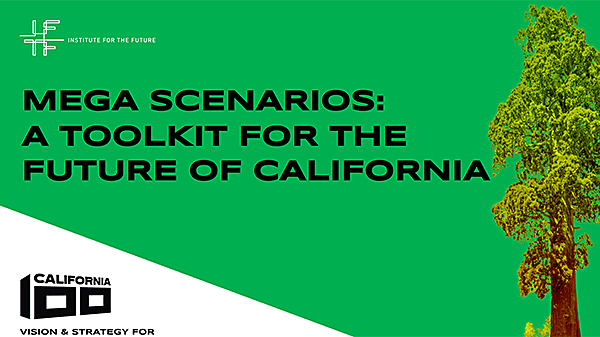Well, this is embarrassing.
Or it ought to be.
For somebody.
Namely, for the Institute for the Future and the California 100, organizations dedicated to thinking about the future of—you guessed it—California.
They have recently issued future scenarios for sixteen sectors of what (we are reminded) is the fifth largest economy in the world, in areas such as governance, media, and civil society; economic mobility, inequality, and workforce; health and wellness; and energy, environment, and natural resources.
For some reason, the analysts have completely overlooked one element: agriculture. It simply doesn’t appear.
The same is true for a different set of megascenarios issued by these organizations looking at the state’s future 10, 30, and 100 years ahead.
There is some concern about a potential “fisheries catastrophe,” “dead spots in the ocean,” and the expectation of continued drought—but about the state’s largest and most important industry, there is nothing.
It might be debated whether anybody pays any attention to futurists to begin with, but the omission reflects a larger public-policy blindness toward California agriculture, even though it is hard-pressed by labor and water shortages, increasingly stringent and costly regulations, urbanization, and environmental degradation (the last being to some extent agriculture’s own fault).
California’s great strength is creativity and innovation, and agriculture—for example, the leafy greens industry—has responded to its challenges with ever more sophisticated technology.
This is all well and good, but it is a mistake to imagine that technology will solve all problems, particularly those caused by the obliviousness of policy leaders.
 In a way, it’s a compliment to California growers to be taken so much for granted. It reflects a naïve faith that they will always be there to provide cheap, safe, and reliable food.
In a way, it’s a compliment to California growers to be taken so much for granted. It reflects a naïve faith that they will always be there to provide cheap, safe, and reliable food.
But it is not a way to think about the future.
I lived in California for close to 20 years, and although I never felt at home there, I retain a great affection for the state and a powerful impression of its greatness. It would be sad to go back one day and see license plates that read, “Land of Diminishing Returns.”



